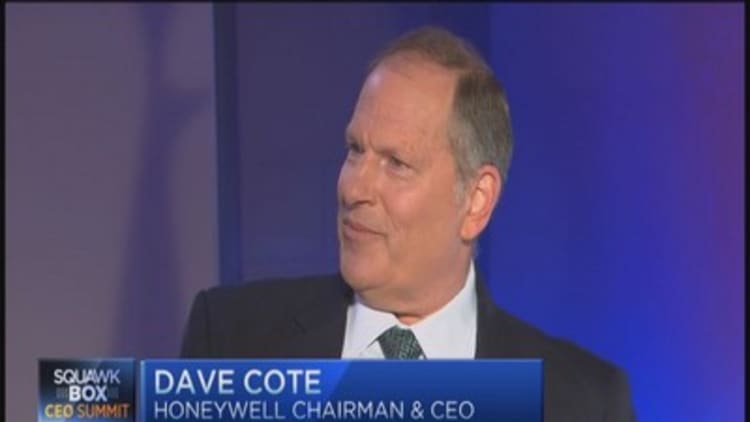
When CEO David Cote advocated for Honeywell employees to take a health survey as part of a company wellness program, the last thing he expected was a lawsuit, Cote told CNBC on Wednesday morning.
"I have to admit I was more than a little bit surprised by this suit … in fact, 'infuriated' might be a good way to put it," Cote said on "Squawk Box."
The U.S. Equal Employment Opportunity Commission, an independent agency, for imposing penalties for employees who don't want to take the test. If Honeywell employees and spouses choose not to take the biometric survey, they could be penalized up to $4,000 each, through surcharges and lost contributions. The lawsuit said the program violates the Americans with Disabilities Act and Genetic Information Nondiscrimination Act.
"If they don't get the survey, then they have to pay $100 more per month for their policy," Cote said. "So we don't refuse anybody any coverage. And the whole point is, why should people who don't care about how they're living, why should they be able to take advantage of all the people who do care?"
The testing measures various health biometrics, including blood pressure, cholesterol, waist circumference and nicotine. Honeywell does not know the data results, only the tested employees know of their own data, Cote said. So far, Honeywell has 85 percent employee compliance with the biometric testing.
The biggest irony in the lawsuit, Cote said, is that President Barack Obama's Affordable Care Act encourages companies to implement such programs. If he were the Obama administration, he would also be frustrated with EEOC agency since this is exactly what the government is trying to get people to do.
Cote said the structuring of the wellness testing was inspired by "Nudge," a book co-authored by Cass Sunstein. The book revealed that "people are three times more likely to respond to a negative than a positive.… If you say you have to pay more, it has a greater effect than if you say you'll pay less," Cote said. "So, that's why we constructed it the way we did."


